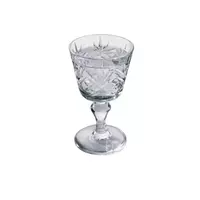Vodka

This alcoholic drink with a strength of at least forty degrees, which is a colorless solution of alcohol and water, is overly popular not only with us in the country, but around the world. However, if in Russia it is customary to use vodka mainly as an independent drink, then in the rest of the world it is used as a basis for the preparation of various alcoholic beverages. This is due to the neutral taste and universal properties of vodka.
The trade name, like the term "vodka" itself, first got its modern meaning in the vastness of our homeland only in 193
6. And until that time, this word, which appeared in Russian approximately in the 14th and 15th centuries, did not have a clearly defined meaning. Then this drink was any infusion of herbs, berries or roots on strong alcohol.
Types of vodka
In addition to Russia, each individual country boasts the production of this strong drink, therefore, there are an exorbitant number of types of vodka. However, depending on the method and region of manufacture, as well as the variety of raw materials, the names of this product and the recipe for its preparation differ to a large extent.
Interestingly, the most expensive type of vodka in the world is a Scottish drink called "Diva. " The price per bottle varies from 4 thousand to more than one million dollars, depending on the decoration of the container.
Composition of vodka
The composition of vodka is quite simple: rectified ethyl alcohol obtained from food raw materials and corrected water. This solution is eventually purified by activated carbon, filtered and poured into consumer containers. Sometimes, to give a specific aroma or softer taste, special ingredients are added to vodka, such as thickeners, stabilizers, vitamins or flavors. The calorie content of vodka is 237 kcal per 100 grams.
The benefits of vodka
The question of the dangers or benefits of vodka has long been relevant, one might say, since when this product began to be consumed. It has been proven that within reasonable limits, the use of alcohol, including vodka, reduces the risk of death from a sudden heart attack. In addition, small doses of this product can protect against diabetes and gallstones.
An important fact in favor of vodka is also the socio-psychological aspect. So, after a busy working week, a small glass of alcohol has a relaxing effect, and communication with friends becomes more direct and pleasant.
Harm of vodka
However, in everything you need to know the measure, including the use of vodka. The daily dose may depend on certain factors, such as a person's weight and height, sex and age, and the presence of certain diseases. But be that as it may, a large amount of alcohol consumed has a disastrous effect on a person.
The harm of vodka can manifest itself in unexpected cardiac arrest or stroke if you abuse this drink. And alcohol addiction is a serious disease that causes a lot of trouble not only for the most sick, but also spoils the life of others.
vodka 237 kKal
Energy value of vodka (Ratio of proteins, fats, carbohydrates - ju):
Proteins: 0 g (~ 0 kCal)
Fats: 0 g (~ 0 kCal)
Carbohydrates: 0.4 g (~ 2 kCal)
Energy ratio (bj | y): 0% | 0% | 1%
 Español
Español Français
Français Português
Português Русский
Русский 简体中文
简体中文 繁體中文
繁體中文 日本語
日本語 한국어
한국어 العربية
العربية Türkçe
Türkçe Қазақ
Қазақ Deutsch
Deutsch Italiano
Italiano Українська
Українська
